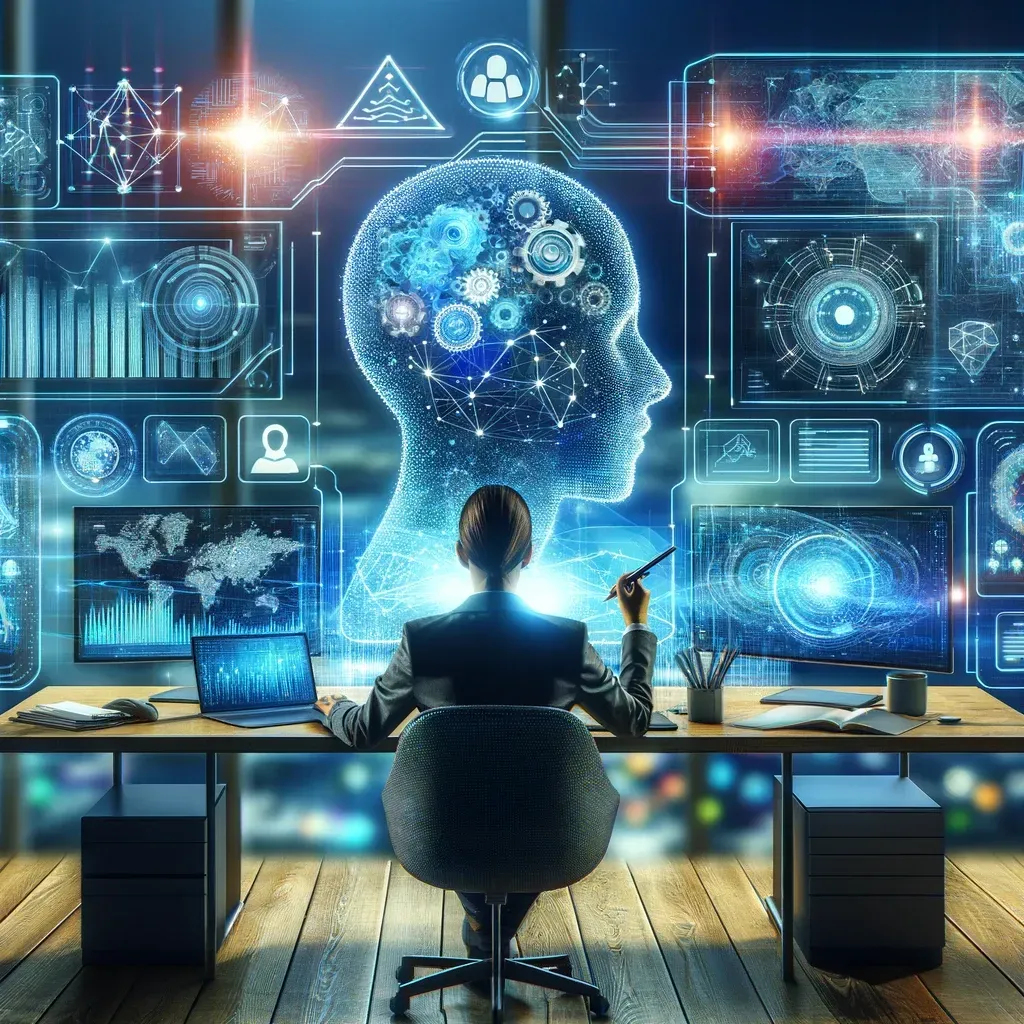The Evolution of Marketing Jobs in the AI Era
The Evolution of Marketing Jobs in the AI Era

The landscape of marketing has been dramatically reshaped by the introduction of artificial intelligence (AI). Traditional roles and responsibilities are evolving as AI tools and technologies become more integrated into daily tasks. This evolution is not just changing how marketers operate but also redefining the skill sets needed to thrive in the industry.
1. Automation of Routine Tasks:
The most immediate impact of AI on marketing jobs has been the automation of routine and repetitive tasks. AI-powered tools are now capable of conducting market research, analyzing customer data, and even managing social media accounts. This shift has allowed marketers to focus more on creative and strategic tasks. For instance, instead of spending hours analyzing consumer behavior data, marketers can now rely on AI to process and interpret this information, identifying trends and insights much faster than a human ever could.
2. Enhanced Personalization and Customer Experience:
AI has enabled a new level of personalization in marketing. By leveraging machine learning and data analytics, marketers can now create highly personalized customer experiences, tailored to individual preferences and behaviors. This shift demands a deeper understanding of data analysis and customer psychology from marketers, pushing them to develop skills that align with these advanced, personalized marketing strategies.
3. Emergence of New Roles:
As AI takes over more routine tasks, new roles are emerging within the marketing domain. Positions such as AI Marketing Strategist, Data Scientist, and Customer Experience Analyst are becoming more prevalent. These roles focus on interpreting AI-generated insights, strategizing AI implementation, and ensuring that technology aligns with the company's marketing objectives. Consequently, marketers must continuously learn and adapt to stay relevant in their evolving field.
4. Greater Focus on Creative and Strategic Thinking:
With AI handling the analytical and data-driven aspects of marketing, professionals are expected to channel more energy into creative thinking and strategic planning. This shift underscores the importance of human intuition and creativity, which AI cannot replicate. Marketers are finding themselves spending more time on content creation, branding strategies, and innovative campaign ideas.
5. Ethical Considerations and AI Governance:
The integration of AI into marketing also brings new ethical considerations. Marketers must now navigate issues related to data privacy, consent, and AI transparency. As a result, there is a growing need for professionals who understand the ethical implications of AI and can develop guidelines and policies to ensure that marketing practices remain responsible and consumer-friendly.
6. Continuous Learning and Adaptation:
The rapid evolution of AI technology requires marketers to engage in lifelong learning. Staying updated with the latest tools, techniques, and ethical guidelines has become crucial. Marketers must be proactive in educating themselves about new AI developments and understanding how these can be applied to enhance marketing strategies and customer engagement.
Conclusion:
The advent of AI in marketing is not about replacing humans but rather augmenting and enhancing human capabilities. While certain tasks are becoming automated, the role of the marketer is becoming more crucial than ever, shifting towards more creative, strategic, and ethical dimensions. The future of marketing will belong to those who can blend AI insights with human creativity and ethical considerations, forging campaigns that resonate deeply with consumers on a personal level.
Contact us
hello@jobdoneautomation.com
Menu
Subscribe to our monthly digest
Let us show you how you could benefit from our services
Join the Newsletter
We will get back to you as soon as possible
Please try again later
All Rights Reserved | Job Done Automation
